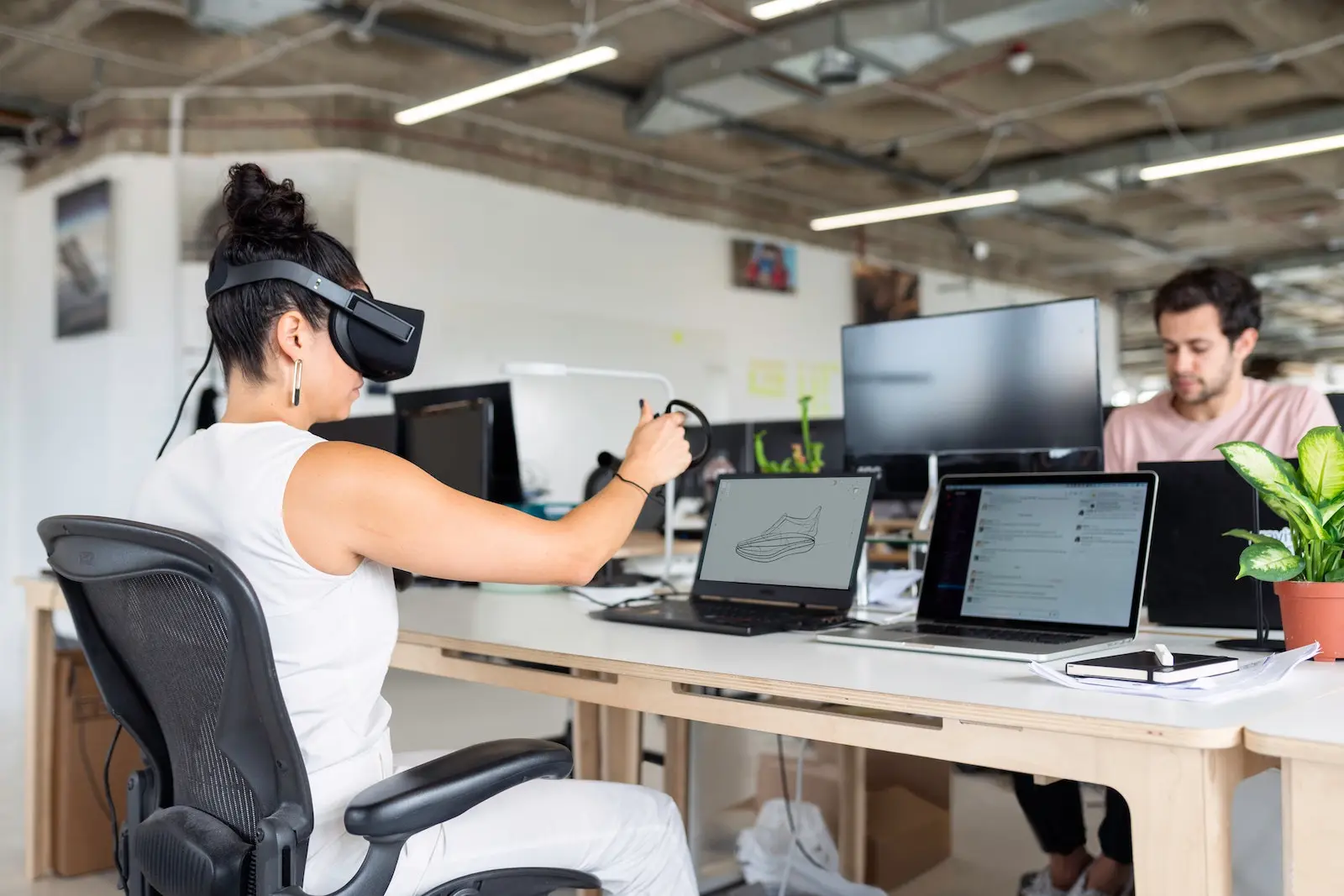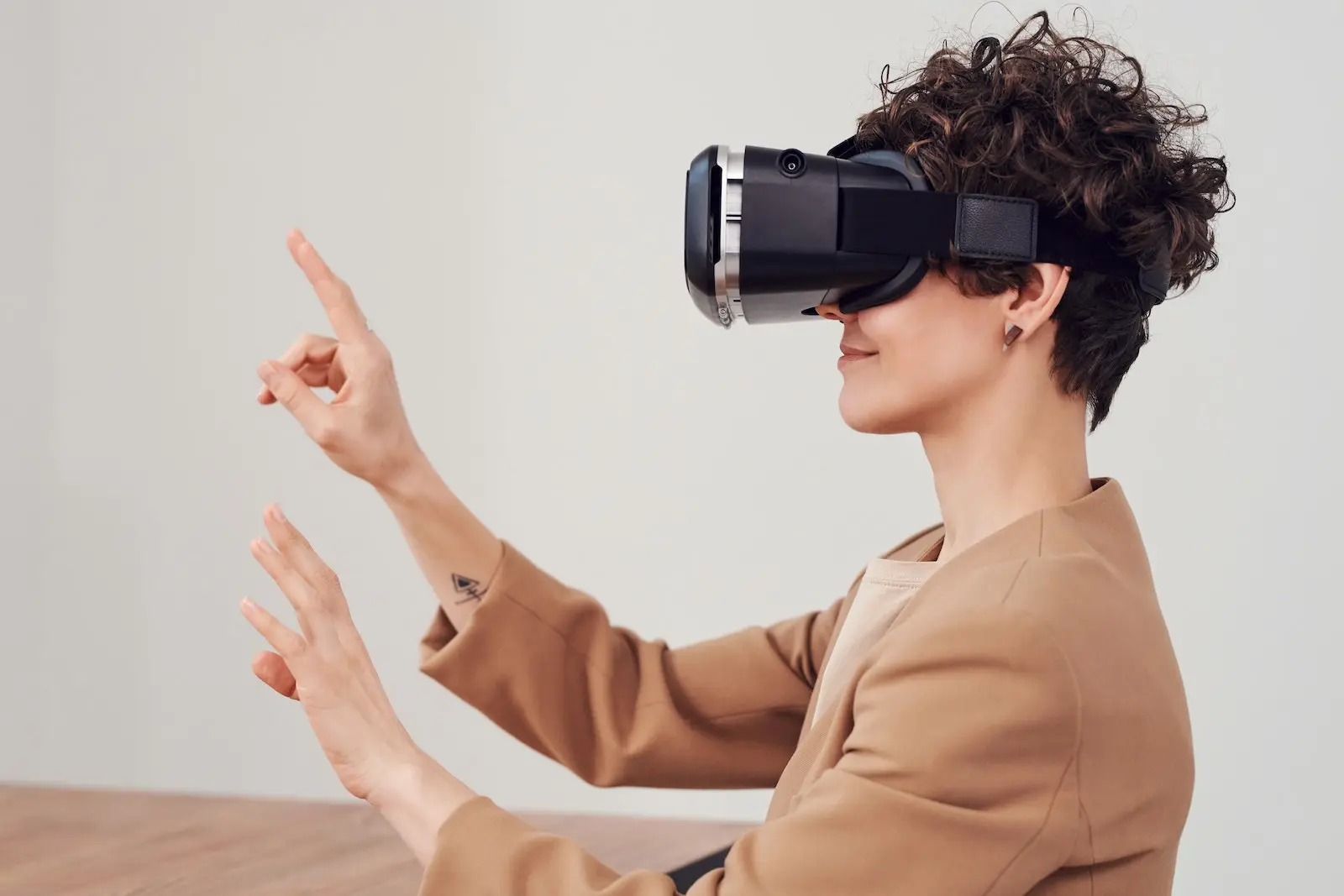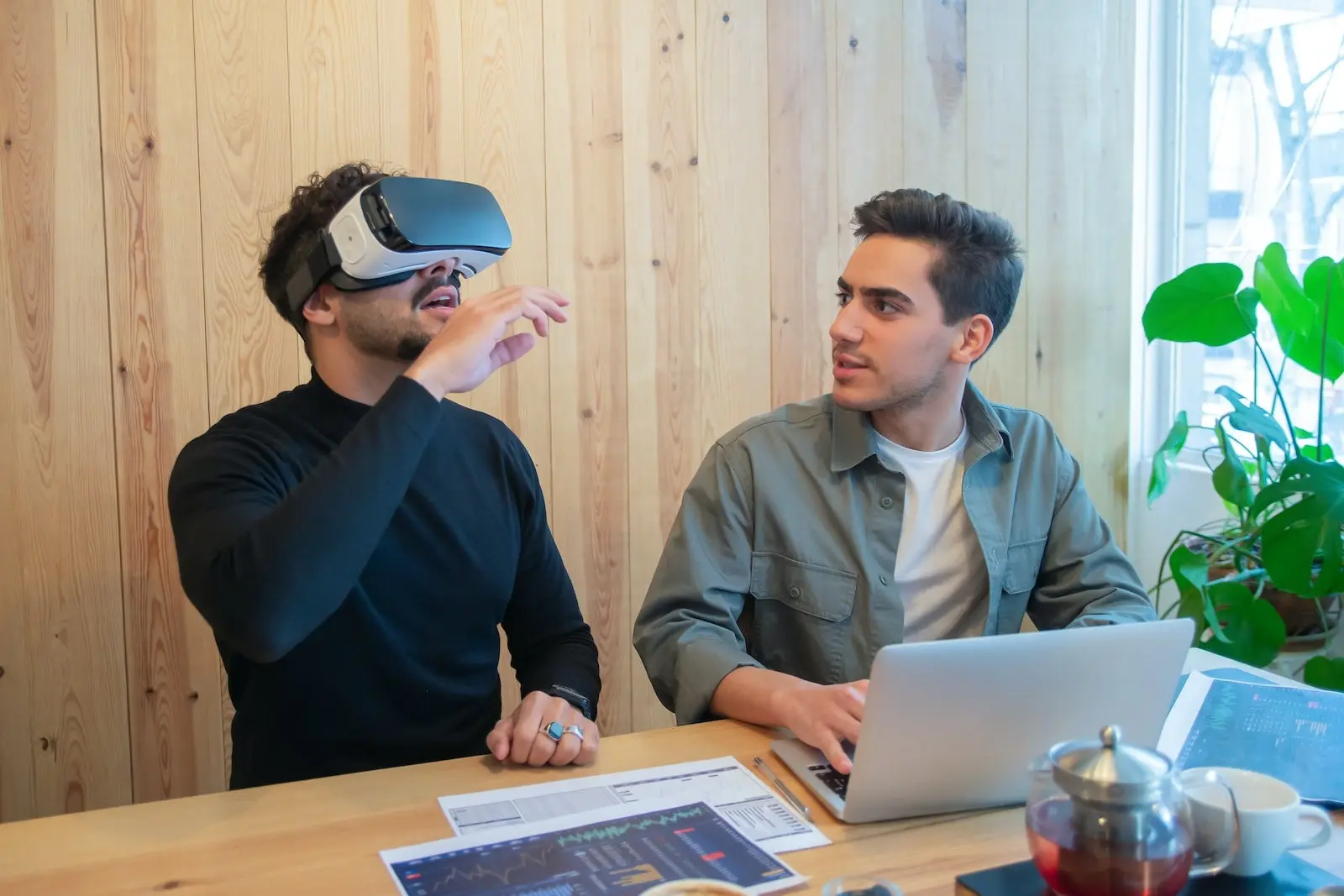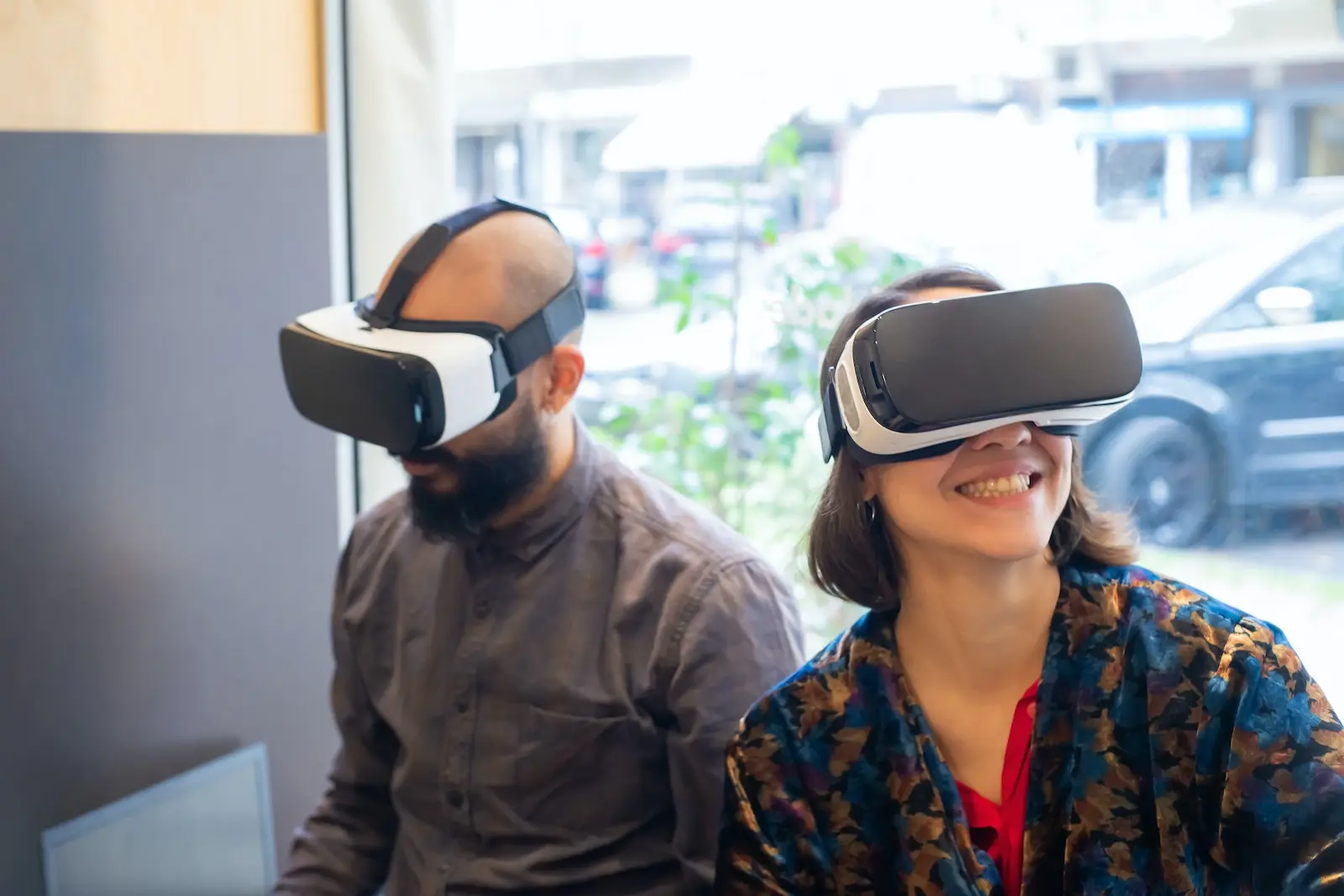Whether it’s Facebook’s splashy rebrand to Meta or your friend’s post on their LinkedIn feed, you most likely have been hearing of “the metaverse” for a while. But you might not be able to point to one or understand why it matters to a coworking business like yours. So what is the metaverse, and how will it influence coworking spaces in the next few years?
What is the metaverse?
The metaverse is a term that refers to an internet of connected, compatible, platform-agnostic virtual spaces – a virtual world of sorts. This virtual world can be shared by many people and is fully immersive, where people can interact with each other and other digital objects in real-time. It’s still in its early days but has the potential to change how we live, work, and interact with each other.
On the “frontend” these spaces might run on virtual reality and augmented reality systems, and on the “backend” these spaces might be connected to each other by shared protocols or blockchains. In the same way, VoIP calling exposed business phones to digital transformation, the metaverse will expose the coworking space to all kinds of technologies and experiences.
The metaverse will allow you to carry your identity and data across different experiences. This means you could be walking through a virtual art gallery with friends and then seamlessly move into a racing game without exiting and entering different apps.
In the short-term, one application of the metaverse is virtual coworking for remote teams. Tools like Horizon Worlds or Gather enable the flexibility of remote work with all the benefits of being together in the same space with your team and provide a “virtual layer” over the physical world where people can work and collaborate with each other.
6 Ways The Metaverse Is Influencing Coworking Businesses
In the long term, the metaverse could change everything about the way we work. But in the short term, how could it influence how we work and more specifically, coworking?
It creates a new generation of hybrid and remote workers
After three years of being the new normal, there are young people in the workforce who have never set foot in an employer’s office. As metaverse platforms try to tailor themselves to remote work, there’s going to be a new wave of workers who are used to working in virtual spaces at least some of the time.
These virtual “rooms” enable people to be present at a desk where colleagues can chat or easily ask a quick question. This staves off the feeling of loneliness that remote workers can have but also brings the benefits of in-person collaboration to distributed teams.
As people get frustrated with the drawbacks of remote work, they’ll increasingly seek out the kinds of experiences the metaverse can provide. This is an emerging market that coworking spaces would be wise to be marketing to as soon as possible. As we’ll see, there are plenty of ways they can use the metaverse to add even more value to their current offering.
Increase in online meetings, conferences, and events
The metaverse enables coworking businesses to host online meetings, conferences, and events for their customers. This means they can connect to more customers, like the remote workers at the companies they’re already serving. They can also meet and talk to potential leads and use online conferences and events in the metaverse to advertise their services.
With their own space in the metaverse, they can maintain a place for their customers to meet with others online with some of the benefits of in-person interaction. This can be a nice value-add to their traditional offering, or they can lean in and make it core to their business.
Newly developed social media marketing and content rules
The metaverse is going to have a big impact on how coworking businesses can market their business online.
A “digital twin” of a brick-and-mortar coworking space can do several things. Visitors to your site can “walk” around a recreation of your offices. This experience is much better than the Google Street View-style navigation some spaces offer today. You can also do “in-person” tours of the office in virtual space for leads who’d be put off by the travel time.
Networking events are a staple of coworking spaces’ value proposition. By bringing in all the remote workers who are part of your customers’ companies, you can make it even more of a value-add by inviting more people that aren’t physically able to come into the coworking space but could come to the “digital twin” space, to strike up a conversation with.
Improved team collaboration and efficiency
The metaverse has empowered coworking businesses to create virtual spaces where distributed and hybrid teams can collaborate and work together more effectively. This is a huge advantage for coworking businesses as it allows for teams to stay connected and collaborate regardless of geography.
A metaverse space can integrate 1-to-1 video calls, group calls, whiteboarding sessions, and passive coworking into one seamless experience. Additionally, with AR and VR for video conferencing, virtual meetings can feel more immersive and engaging than traditional video calls. This brings chance encounters and “water cooler conversations” back into the remote work setting. Rather than negotiating a video call, workers can just walk to someone’s virtual desk and ask a quick question.
A rise in security and privacy threats
In a virtual coworking space, you need to be aware of who can listen in on the conversations that are happening. For example, if you enter a seating area in Gather, a metaverse video chat platform, it highlights the space in which people are able to hear you. For premium members, meeting rooms can be locked so that only certain people can freely enter. You need to understand how privacy works for your virtual space so you can make customers comfortable discussing sensitive information.
In addition to privacy concerns, coworking staff, and customers need to be trained on security best practices of the metaverse as it contains cybersecurity risks like account theft, message encryption, and more.
AR and VR integration in workflows
The metaverse runs on AR and VR, but it’s not limited to that. Integration with companies’ existing tech stacks is critical to making the metaverse useful.
Companies can use enterprise API management software to have all their apps talking to each other. The API manager puts the whole tech stack in one place and makes it easy to integrate new tech with what they’re using already.
Coworking businesses can support customers in using this technology by including onboarding to the software as part of their introduction to the coworking space. They can take get customers set up on the system and introduce them to the main functionalities. Coworking spaces can also integrate their own coworking management software into the virtual office so customers can book meeting rooms and more without context-switching.
Once customers are up and running, teams can collaborate on the platforms used by the coworking space. One virtual whiteboard can show up on one colleague’s tablet while they’re drawing on it, and be updated live in the metaverse meeting room. Later, anyone can view the whiteboard on their desktop to refer back to it.
How can coworking spaces prepare for the metaverse?
The most interesting parts of the metaverse are years or maybe even decades away. But the benefits of simple virtual presence apps are clear, and this is the part most relevant to coworking spaces today. To prepare for the metaverse, you should:
- Keep on top of the latest VR and AR technology through sources such as Wired or Forbes
- Understand spatial design principles, taking inspiration from architecture, game design, and existing metaverse spaces like VRChat
- Make sure staff have hands-on experience with existing metaverse tools
- Create a digital twin of your physical space and figure out how you can leverage it for your marketing efforts
Take advantage of the metaverse today
The metaverse offers a world of possibilities for coworking businesses. By combining existing software with “in-person” collaboration, coworking spaces can become as hybrid as the teams they want to serve. A digital twin could be a great marketing tool today. But as the tech develops, the metaverse could become core to coworking businesses all over the world.
About the Author:
Richard Conn – Senior Director, Demand Generation, 8×8
Richard Conn is the Senior Director for Demand Generation at 8×8, a leading communication platform with integrated contact center, voice, video, and chat functionality. Richard is an analytical & results-driven digital marketing leader with a track record of achieving major ROI improvements in fast-paced, competitive B2B environments. Check out his LinkedIn.









